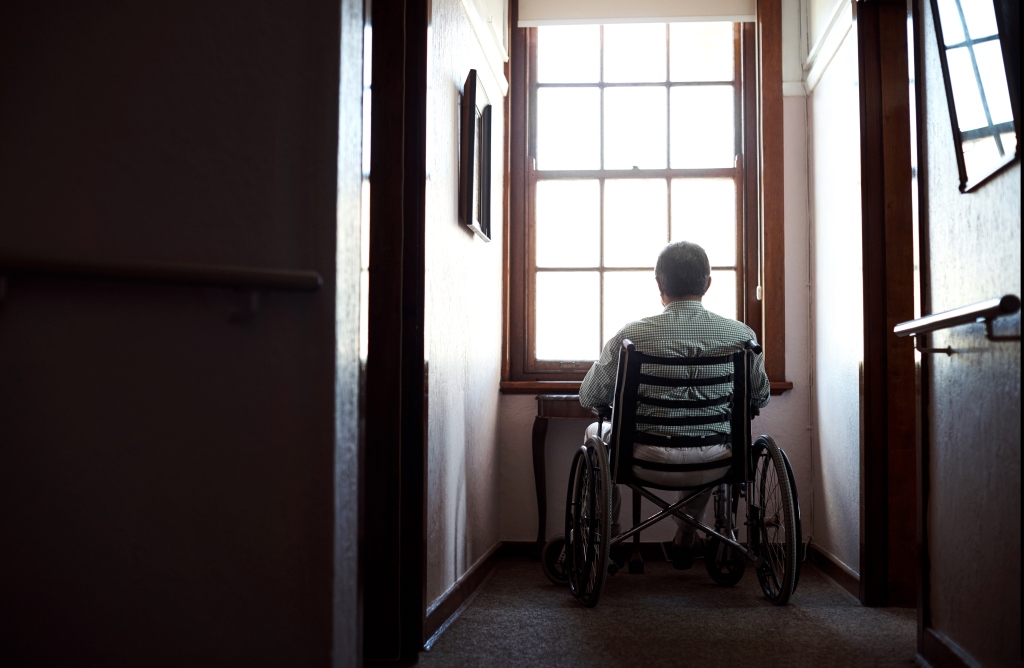By Manoj K. Pandey, Vani S. Kulkarni and Raghav Gaiha
Read the working paper: What are the relationships between ageing, depression, non-communicable diseases and disabilities in South Africa?
Old age is often characterised by poor health due to isolation, morbidities and disabilities in carrying out activities of daily living (DADLs), which lead to depression. Mental disorders – in different forms and intensities – affect most of the population in their lifetime. In most cases, people experiencing mild episodes of depression or anxiety deal with them without disrupting their productive activities. A substantial minority of the population, however, experiences more disabling conditions such as schizophrenia, bipolar disorder type I, severe recurrent depression, and severe personality disorders. Accordingly, a more nuanced and accurate picture of the mental health-related burden is crucial to effective allocation of resources and appropriately designed health systems in response to the nature and the scale of these challenges.
Motivated by these concerns, the latest GDI Working Paper “What are the relationships between ageing, depression, non-communicable diseases and disabilities in South Africa?” focuses on the determinants of depression among the over 60s in South Africa. Much of the recent literature offers an assessment of the influence of demographic, ethnic, living arrangements, marital status, morbidity, ADL limitations (or DADLs) but in a piecemeal and ad hoc manner using a specification that is neither comprehensive nor rigorous. In addition, several studies rely on a single cross-section or a single wave of the National Income Dynamics Study (SA-NIDS) which doesn’t allow incorporation of individual unobservable effects. Such effects are potentially significant as it is frequently observed that there is considerable variation in depressive symptoms even when old persons suffer from a common non-communicable disease and DADL.
Our paper aims to overcome these difficulties by relying on a comprehensive state-of-art econometric specification. The analysis is based on a rich panel data set with 4 waves of National Income Dynamics Study for 2008, 2010, 2012 and 2014 (SA-NIDS). To the best of our knowledge, this is the first econometric analysis of depression that utilises all four waves of the panel survey. Many of the key findings are robust.
We found:
- Ageing is a major factor in depression. Those in their early 60s are generally more likely to be depressed than older persons in their 70s and 80s. Women are more likely to be depressed than men. Married men and women are less likely to be depressed than others – marriage thus serves as a barrier to loneliness and a source of support during periods of stress for the elderly. However, somewhat counter intuitively, the elderly in larger households (as the only old person in that household) are more prone to depression. It is not clear whether larger households result in neglect of old persons or their abuse.
- Old women were consistently more likely to be depressed than old men, as they are subject to violence and other stressors, often associated with conflicts over their partner’s drinking, the woman having more than one partner, and her not having post-school education.
- Black Africans are more prone to depression than the reference groups of Whites and Coloureds. There is limited evidence suggesting that Asians/Indians/Others are more likely to be depressed.
- Pensioners are less likely to be depressed despite some evidence in the literature on pooling of pensions with other household resources and denying the pensioner any financial autonomy.
- Of particular significance are the results on multimorbidity. Two combinations of NCDs (diabetes and higher BP, and cancer and heart disease) on which we had sufficient observations are significantly positively associated with depression. Equally important are the positive associations between DADLs and depression.
- Shock of a family member’s death (in the last 24 months) was robustly linked to higher depression. There is some evidence suggesting that this shock had stronger effects on women relative to the aggregate sample.
- Although social capital doesn’t have a significant effect (except in a limited way), social trust does. Besides, the mediating role of strong preference for the current neighbourhood is confirmed across most specifications.
- The burden of depression in terms of shares of depressed in total depressed has risen in the more affluent quintiles – especially that of the most affluent. However, likelihood of depression remained lower among the third and fourth quartiles, implying that depression was higher in the poorest (or the least wealthy).
Because most of the disease burden in older age is due to non-communicable diseases, risk factors for these conditions are important targets for health promotion. Strategies to reduce the burden of disability and mortality in older age by enabling healthy behaviours and controlling metabolic risk factors should therefore start early in life and continue across the life course.
Read the full working paper: What are the relationships between ageing, depression, non-communicable diseases and disabilities in South Africa?

